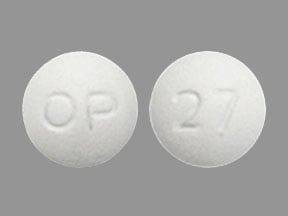
Miglitol Coupons & Savings Card – Discount Prices from $67.25
Miglitol is an oral medication designed to aid in the management of blood sugar levels in adults with type 2 diabetes, used alongside a healthy diet and regular exercise. By working in the intestines, Miglitol acts as an alpha-glucosidase inhibitor, which means it slows down the breakdown and absorption of carbohydrates during meals. This action helps to minimize the increase in blood sugar levels after eating. Effective blood sugar control with Miglitol can help prevent complications such as kidney damage, nerve issues, vision problems, and potentially reduce the risk of heart attacks or strokes. It is typically taken three times daily with the first few bites of each meal. While Miglitol is less likely to cause low blood sugar when used alone, it may result in side effects such as gas and diarrhea.
Our coupons are free to use. Before paying, show the pharmacist your Miglitol savings card to get your free discount. Use our filters below to edit the prescription box to match your needs. The Miglitol prices will update based on your prescription needs. Above our Miglitol coupons, you can change your location to see pharmacy prices and costs in other areas. We're here to help you buy Miglitol at the lowest price with our prescription discount card.
My prescription
Edit
100MG, Miglitol (30 Tablets)
Select pharmacy

CVS
$67.25
COUPON PRICE
Walgreens
$91.85
COUPON PRICE
Walmart
$105.49
COUPON PRICE
Albertsons
$125.20
COUPON PRICEMiglitol savings card
Show this card to your pharmacist
CVS
$67.25
BIN
ID
PCN
GRP
019876
LHB6E8D066
CHIPPO
LHX
Powered by
Miglitol is an oral medication designed to aid in the management of blood sugar levels in adults with type 2 diabetes, used alongside a healthy diet and regular exercise. By working in the intestines, Miglitol acts as an alpha-glucosidase inhibitor, which means it slows down the breakdown and absorption of carbohydrates during meals. This action helps to minimize the increase in blood sugar levels after eating. Effective blood sugar control with Miglitol can help prevent complications such as kidney damage, nerve issues, vision problems, and potentially reduce the risk of heart attacks or strokes. It is typically taken three times daily with the first few bites of each meal. While Miglitol is less likely to cause low blood sugar when used alone, it may result in side effects such as gas and diarrhea.
Our coupons are free to use. Before paying, show the pharmacist your Miglitol savings card to get your free discount. Use our filters below to edit the prescription box to match your needs. The Miglitol prices will update based on your prescription needs. Above our Miglitol coupons, you can change your location to see pharmacy prices and costs in other areas. We're here to help you buy Miglitol at the lowest price with our prescription discount card.
Related alpha glucosidase inhibitors prescriptions
coupons from$73.39Save -79%
More prescriptions for diabetes type 2
coupons from$330.34Save 87%
coupons from$511.43Save 72%
coupons from$24.66Save 44%
coupons from$480.57Save 64%
coupons from$17.95Save 83%
coupons from$52.03Save 72%
coupons from$5.14Save 83%
coupons from$67.09Save 80%
Related alpha glucosidase inhibitors prescriptions
Acarbose Save -79%coupons from $73.39
More prescriptions for diabetes type 2
Cycloset Save 87%coupons from $330.34
Symlinpen 60 Save 72%coupons from $511.43
Glipizide Xl Save 44%coupons from $24.66
Pioglitazone-glimepiride Save 64%coupons from $480.57
Humalog Save 83%coupons from $17.95
Novolin N Save 72%coupons from $52.03
Glyburide-metformin Save 83%coupons from $5.14
Novolog Mix 70/30 Save 80%coupons from $67.09
Miglitol dosage forms
Use our Miglitol 25MG coupon with prices from $54.17 for 30 Tablets. You can also use our Miglitol 25MG coupon with prices from $90.04 for 60 Tablets. We have a Miglitol 25MG coupon with prices from $125.90 for 90 Tablets. You can use our Miglitol 25MG coupon with prices from $137.86 for 100 Tablets.
Dosage Quantity Price from Per unit 25MG 30 Tablets $54.17 $1.81 25MG 60 Tablets $90.04 $1.50 25MG 90 Tablets $125.90 $1.40 25MG 100 Tablets $137.86 $1.38 50MG 30 Tablets $60.35 $2.01 50MG 60 Tablets $102.41 $1.71 50MG 90 Tablets $144.46 $1.60 50MG 100 Tablets $158.48 $1.58 50MG 270 Tablets $396.79 $1.47 100MG 30 Tablets $67.25 $2.24
| Dosage | Quantity | Price from | Per unit |
|---|---|---|---|
| 25MG | 30 Tablets | $54.17 | $1.81 |
| 25MG | 60 Tablets | $90.04 | $1.50 |
| 25MG | 90 Tablets | $125.90 | $1.40 |
| 25MG | 100 Tablets | $137.86 | $1.38 |
| 50MG | 30 Tablets | $60.35 | $2.01 |
| 50MG | 60 Tablets | $102.41 | $1.71 |
| 50MG | 90 Tablets | $144.46 | $1.60 |
| 50MG | 100 Tablets | $158.48 | $1.58 |
| 50MG | 270 Tablets | $396.79 | $1.47 |
| 100MG | 30 Tablets | $67.25 | $2.24 |
| 100MG | 60 Tablets | $116.20 | $1.94 |
| 100MG | 90 Tablets | $165.15 | $1.83 |
| 100MG | 100 Tablets | $181.47 | $1.81 |
